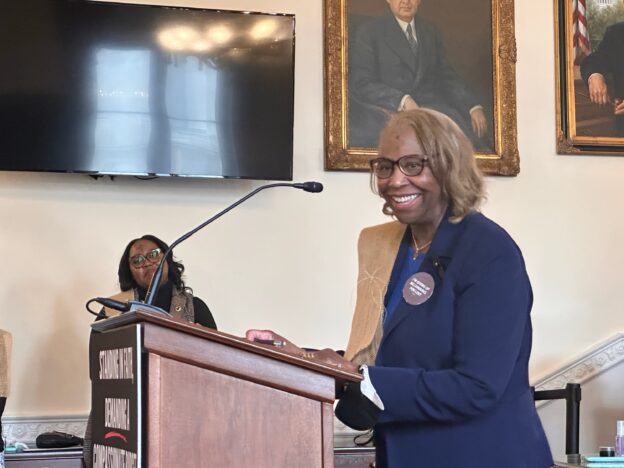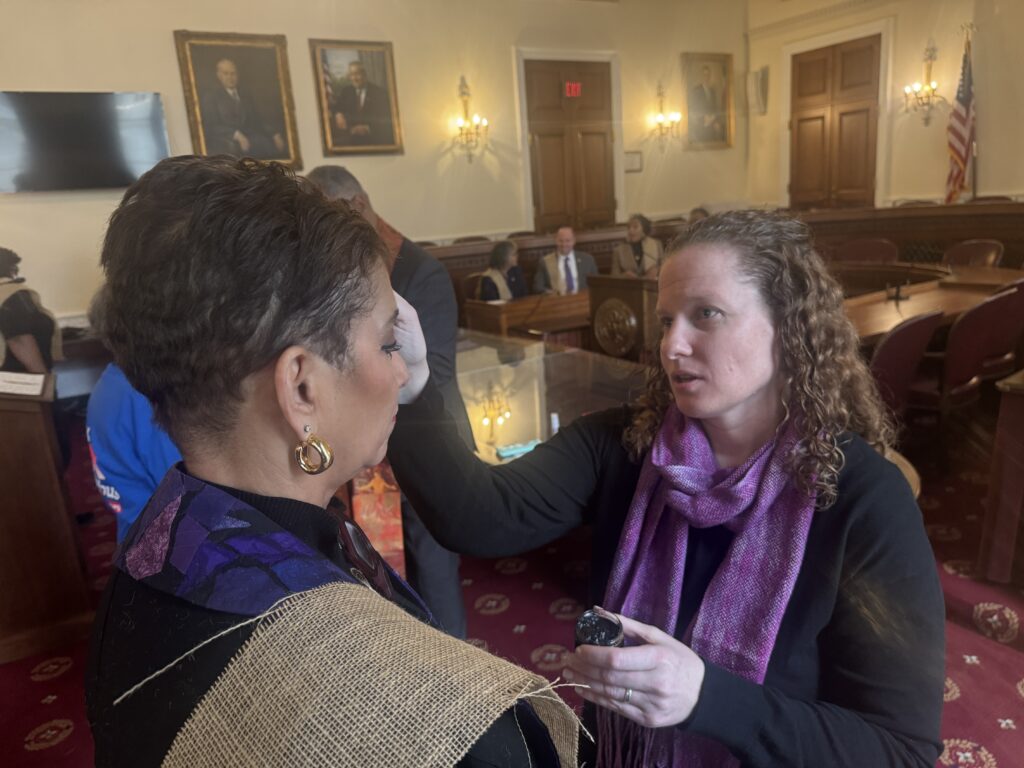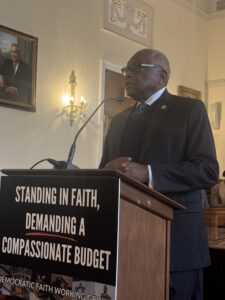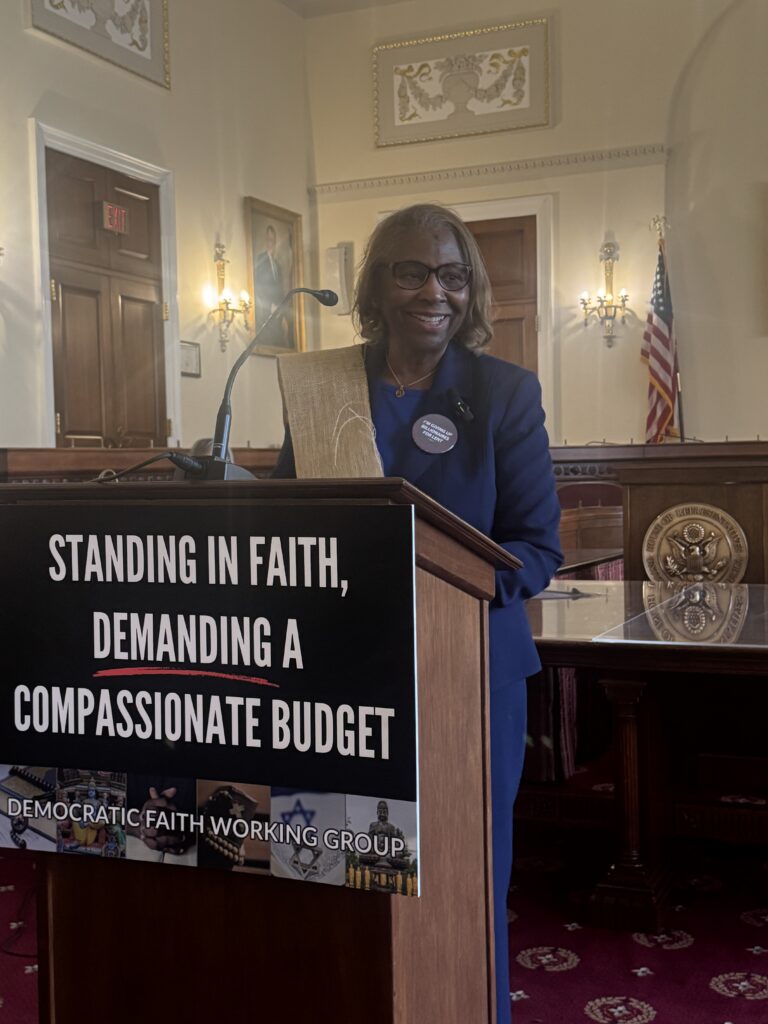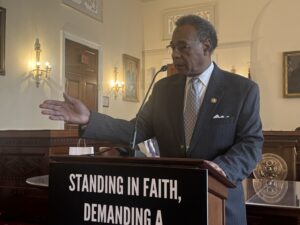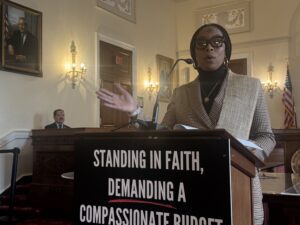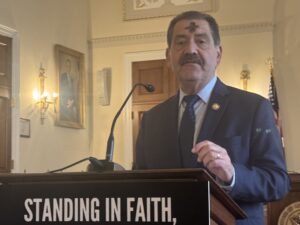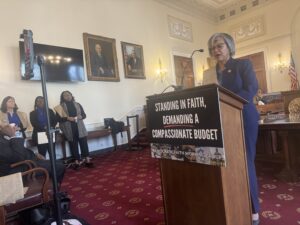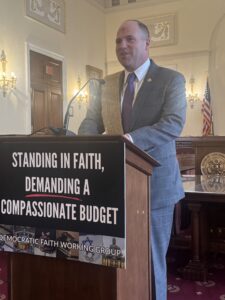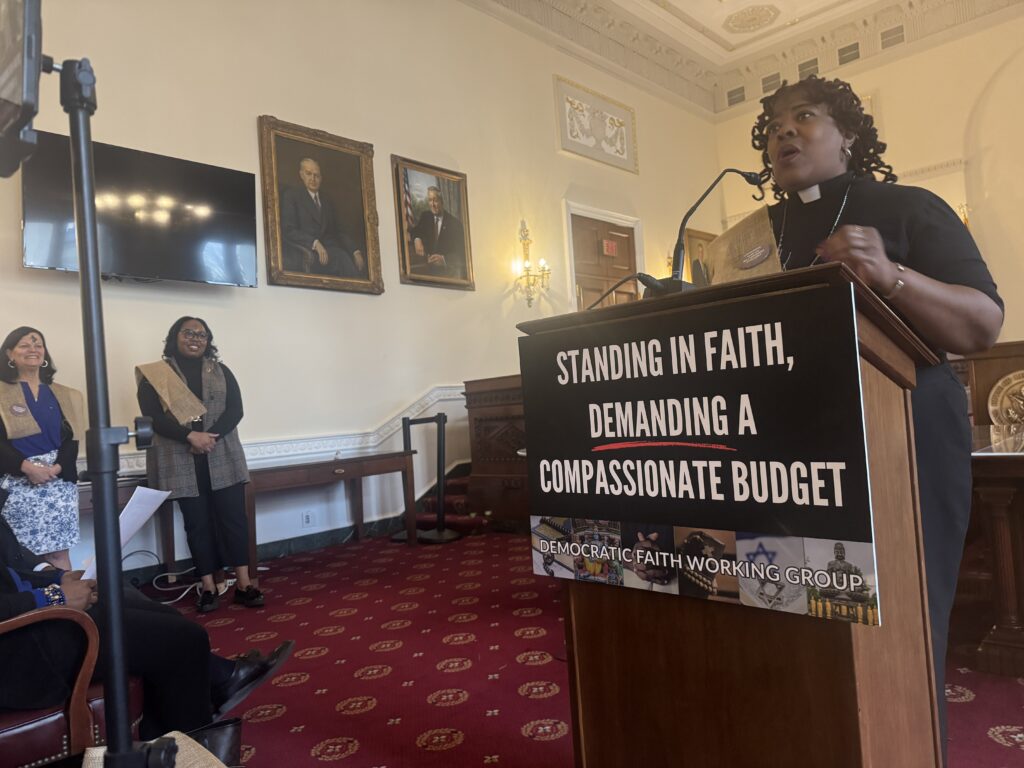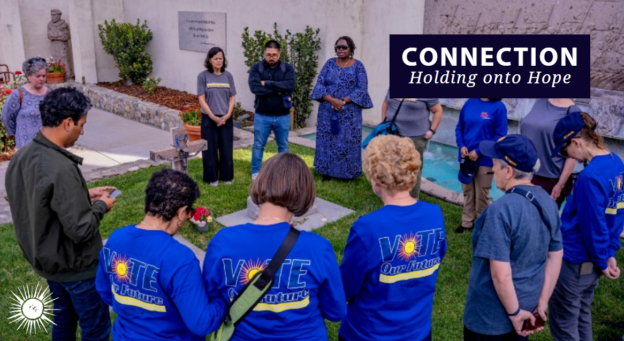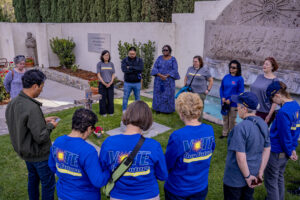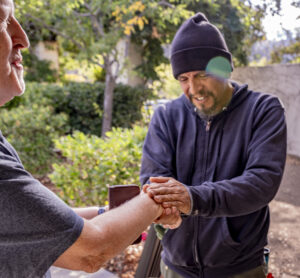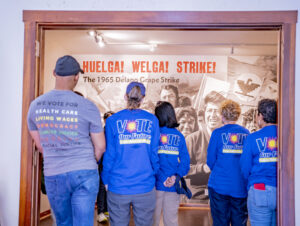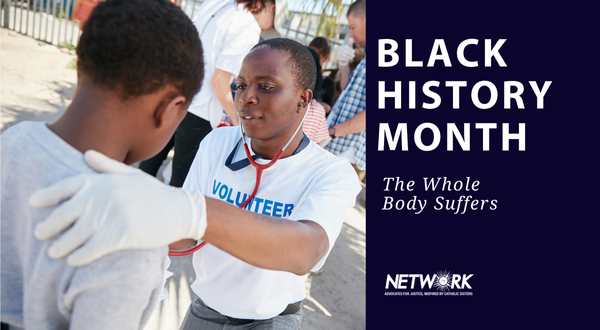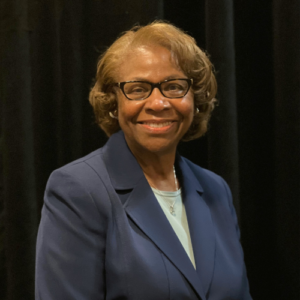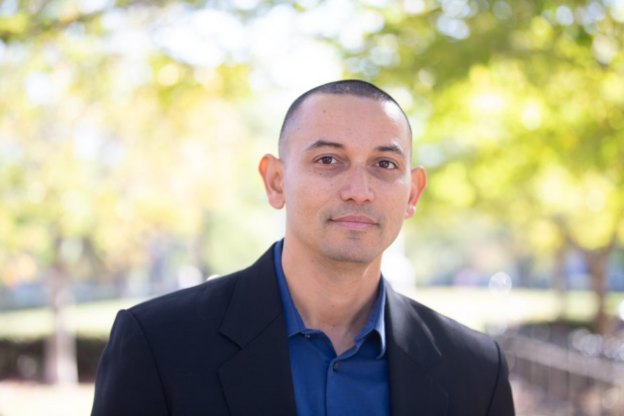Lent 2025: Giving Up Billionaires
Welcome to week 6 of our Lenten series, “Giving Up Billionaires,” as we call on Congress to give up billionaires so our communities can have what we need to thrive. Click here for the rest of our Lenten reflections and actions.

We Aren’t Falling for Division
Sr. Emily TeKolste, SP
April 9, 2025
In the U.S., only one percent of the population earns a million dollars or more per year, and there are just 800 billionaires. Yet this small group of the wealthiest individuals has spent millions to persuade everyday Americans to vote in favor of their interests instead of our own. How have they done that? One answer: by stoking racial fear.
In the 1950s and ’60s, some politicians and their ultra-wealthy backers seized on the discomfort of the Civil Rights Movement to stoke racist resentment. They tried to weaken support for a government that works for the people, so they could instead build a government that works only for the ultra-wealthy.
Some lawmakers and their ultra-wealthy backers today still stoke racial fears by scapegoating our neighbors. The ultra-wealthy try to distract us from the economic problems that their wealth-hoarding creates by pointing the finger at immigrants, transgender people, or working people.
We see this in the Trump administration as they spin lies about diversity, equity, and inclusion (DEI) initiatives to pit white, Black, and Brown workers against each other. And, we see it this week as Republicans in Congress seek $350 billion in the budget reconciliation bill to detain and deport our immigrant neighbors.
Take action
- Call your House Member at 1-888-897-9753 to ensure that Congress does not pay for more tax breaks for the ultra-wealthy and more funding to detain and deport our immigrant neighbors by cutting Medicaid and SNAP in the budget reconciliation bill.
- Spread the word. Save the image that I’ve placed below to your computer or phone, then share it on social media or email it to friends and family.
- Write a letter to the editor (LTE) calling Congress to reject the budget proposal. LTEs are one of the most effective advocacy tactics. Please join us TOMORROW, Thursday, April 10 at 7:00 PM Eastern / 4:00 PM Pacific at our LTE training at our LTE workshop to learn some LTE best practices.
Find more LTE and social media guidance in our Lent toolkit.
The result of these divide-and-conquer tactics has been devastating for most of us, no matter our race or gender. As the ultra-wealthy have amassed power, they have weakened regulations that protect us and our communities and let billionaires off the hook from paying their fair share and contributing to the common good.
These lawmakers and their ultra-wealthy backers hope that we will become too divided and distracted to recognize the real culprits. But we aren’t falling for it! We refuse to fear our neighbors or to fall for attempts to divide us. We know the way through this: to come together across our differences and work to build a world that truly works for all of us–not just the ultra-wealthy. We must demand that our elected officials make the ultra-wealthy pay their fair share instead of giving them tax breaks and taking away our health care, food, and even our immigrant neighbors, to do it.
TAKE ACTION: Call your House member today at 1-888-897-9753 and tell them to protect SNAP and Medicaid and reject funding for detention and deportation and tax cuts for billionaires in the budget proposal! Then, use our Lent toolkit to write an LTE calling Congress to reject the budget proposal.
NETWORK has more shareable content, sample social media posts, and LTE guidance for you in our Lent Toolkit.
Sr. Emily TeKolste, SP is NETWORK’s Grassroots Mobilization Coordinator. To read more, check out her column in Global Sisters Report, “The existence of billionaires is immoral.”










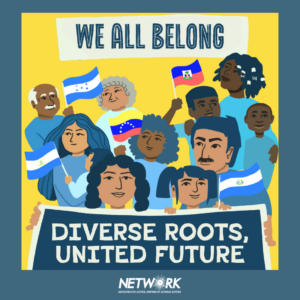
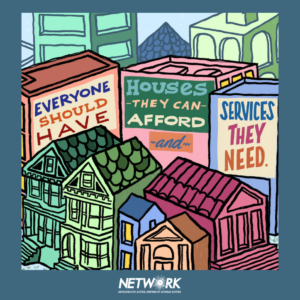
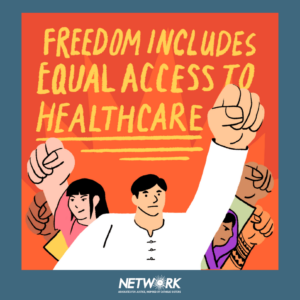
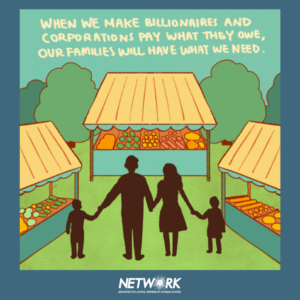
 Sr. Emily TeKolste, SP is NETWORK’s Grassroots Mobilization Coordinator. To read more, check out her column in Global Sisters Report,
Sr. Emily TeKolste, SP is NETWORK’s Grassroots Mobilization Coordinator. To read more, check out her column in Global Sisters Report, 